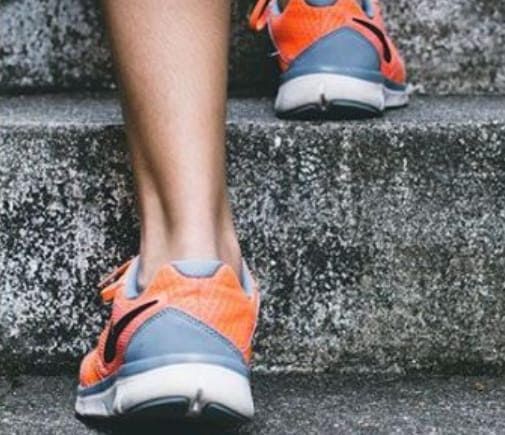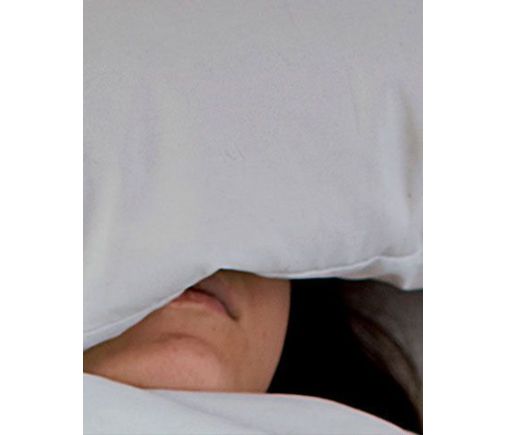Nothing is more frustrating than feeling exhausted but not being able to get a good night's rest. You suffer through your day in agony and long to crawl into bed to get some relief. But as soon as your head hits the pillow, your arthritis pain seems to intensify.
You should know that you are not alone if your discomfort is keeping you up at night. Twenty-three percent of people with arthritis have insomnia. It is important to understand why your discomfort may be causing your inability to sleep. You should rest assured knowing there are several ways to help improve your quality of sleep and ease your discomfort.
Why Does Pain Get Worse At Night?
Insomnia is higher among those with arthritis, according to a study by the National Institutes of Health. Another study found 34 percent of those with osteoarthritis suffer from insomnia. A University of Pittsburgh study reported one-third of rheumatoid arthritis patients awoke at least three times a week due to discomfort.
There are several reasons why you are feeling your aches more at night:
- The brain is not able to decrease pain signals when you feel tired.
- Cortisol levels are lower at night.
- Staying still in one position causes your joints to stiffen up.
- Your activities during the day distract you from your discomfort.
Does Lack Of Sleep Increase Pain?
Your discomfort feels more severe when you are tired due to a poor night's rest. The brain is unable to ignore anti-nociceptive pathways or pain signals when you feel tired. You are less likely to exercise when you feel tired, which helps decrease achiness.
There are three sleep stages: light sleep, deep sleep, and rapid eye movement (REM) sleep. In order to feel rested, our bodies go through these cycles 4-6 times in the night. When woken up by pain, you spend too much time in light sleep. A shortened REM cycle increases pain sensitivity.
Why Do Individuals With Pain Have Trouble Sleeping?
Pain is a sensation you experience when nerves become stimulated to an intense degree. This sensation keeps areas of the brain active, which keeps you from falling asleep. Chronic discomfort also causes anxiety which disrupts sleep even more.
How Can I Stop My Joints From Hurting At Night?
Exercise plays an essential part in your overall health, including pain reduction and sound sleep. Your joints swell at night when you are lying still, but movement lubricates them. During the day, you should stay active with low-impact exercises such as:
- Swimming
- Bike Riding
- Walking
- Yoga
- Stretching
How Can I Sleep With Pain?
It is important to find a comfortable mattress and improve your position to get better rest. A foam mattress topper will ensure your weight is evenly distributed, keeping the pressure off your joints. You should lay on your side with a pillow between your legs to keep your spine in alignment.
Is Pain All In Your Head?
Your pain is real but your perception of it changes when you feel tired. If you haven't gotten enough rest, then you probably are in a bad mood. Your bad mood makes you less able to tolerate your discomfort.
It's no wonder why you're in a bad mood. Pain and sleep deprivation are two standard torture techniques, after all. Lack of rest and chronic discomfort often leads to depression and anxiety. Cognitive-behavioral therapy with a licensed professional will help in your ability to cope with chronic pain.
Tips To Improve Sleep While Dealing With Pain
A healthy nighttime routine will help you to fall asleep faster and stay asleep longer.
To improve your quality of sleep, you should:
- Maintain a schedule by going to bed and waking up at the same time each day.
- Avoid eating 3-4 hours before bed.
- Limit caffeine to the morning only, or cut out entirely if possible.
- Reduce your sugar intake.
- Skip your afternoon nap.
- Exercise earlier on in the day, not before bed.
- Replace your nightcap with herbal tea such as chamomile.
- Relax your body with a shower or bath.
- Read a book in bed instead of watching TV or scrolling on your phone.
- Keep your room dark to increase melatonin.
- Shut off your devices before getting into bed.
- Use a fan or sound machine to block out sounds.
- Imagine yourself in a calm and peaceful location.
- Meditate or practice deep breathing.
How To Sleep With Severe Sciatica
When you suffer from sciatica, lying down increases pressure on your irritated nerve. To relieve this discomfort, you should lay on your side with a pillow between your knees. If you prefer to lay on your back, you should put a pillow under your lower back or knees.
Does Pain Stop When You're Asleep?
Your body begins to heal when you are sleeping, but your hurting does not necessarily stop. You may wake up when you change positions and become aware of your discomfort again. Taking a long-lasting pain reliever before bed will help ease aches throughout the night.
The best way to decrease pain is to get more sleep. The best way to get more sleep is to limit pain. It is a vicious cycle but practicing a healthy lifestyle will help relieve your pain and improve your sleep.
Resources:
https://creakyjoints.org/acr-2018/painsomnia-tips/
https://www.ncbi.nlm.nih.gov/pmc/articles/PMC4589931/
https://health.clevelandclinic.org/how-to-keep-sore-hips-knees-shoulders-from-ruining-your-sleep/
https://www.iowaclinic.com/sleep-center-west-lakes/how-to-get-better-sleep-when-youre-in-pain/
https://www.hss.edu/playbook/is-my-pain-all-in-my-head/
https://www.webmd.com/sleep-disorders/features/pain-and-sleep
https://www.healthline.com/health/how-to-sleep-with-sciatica







